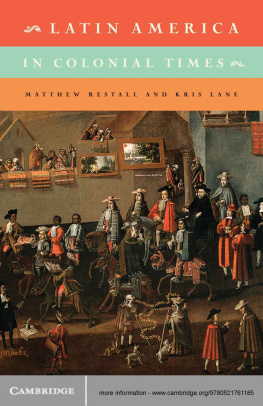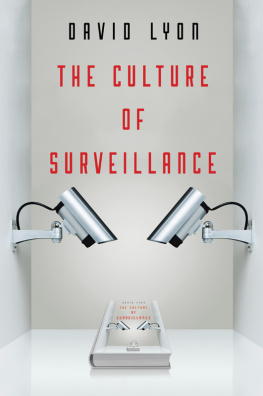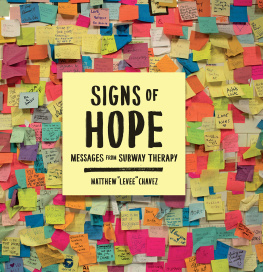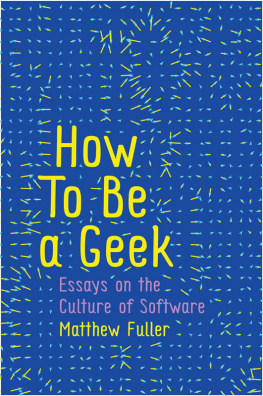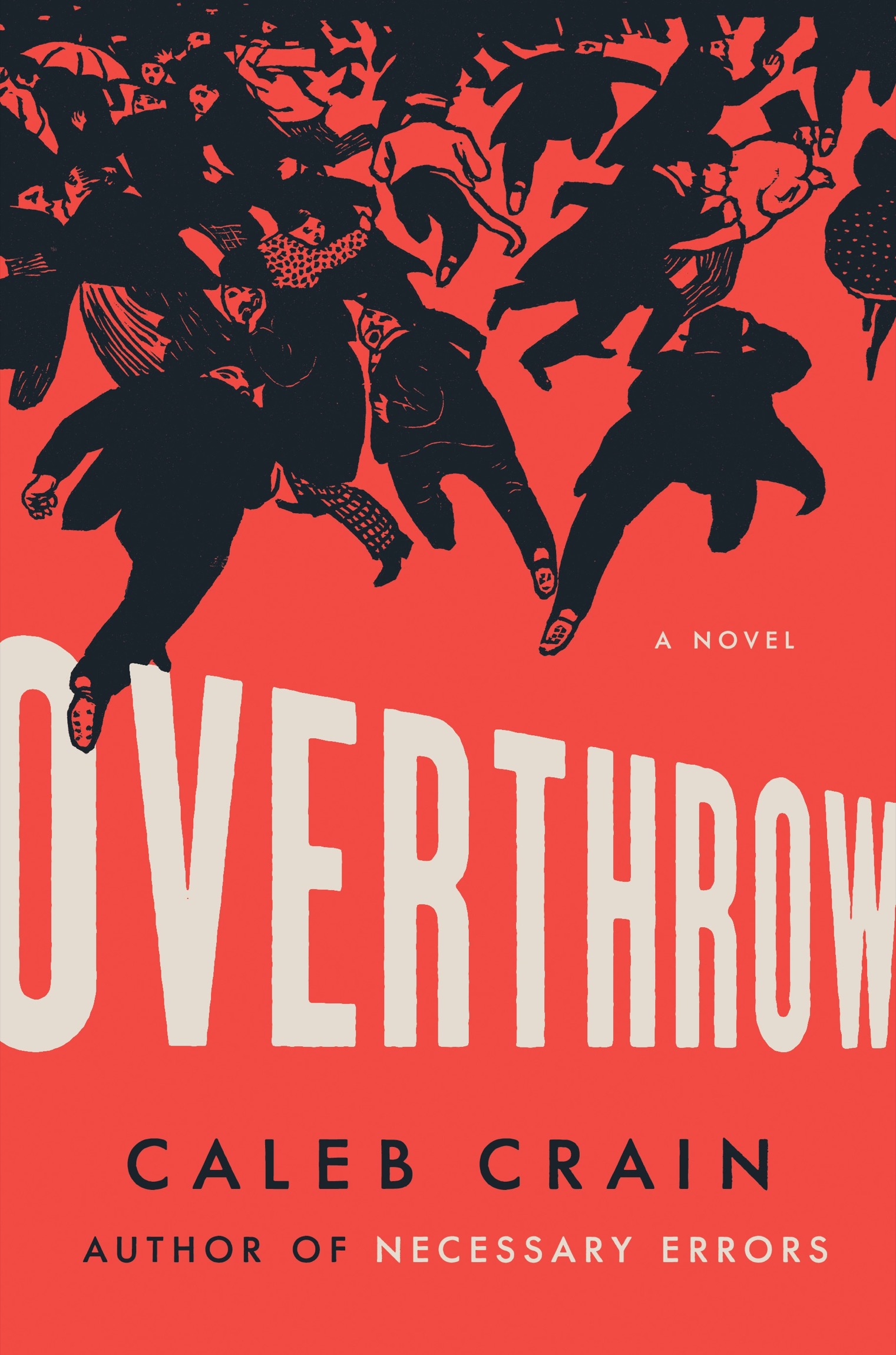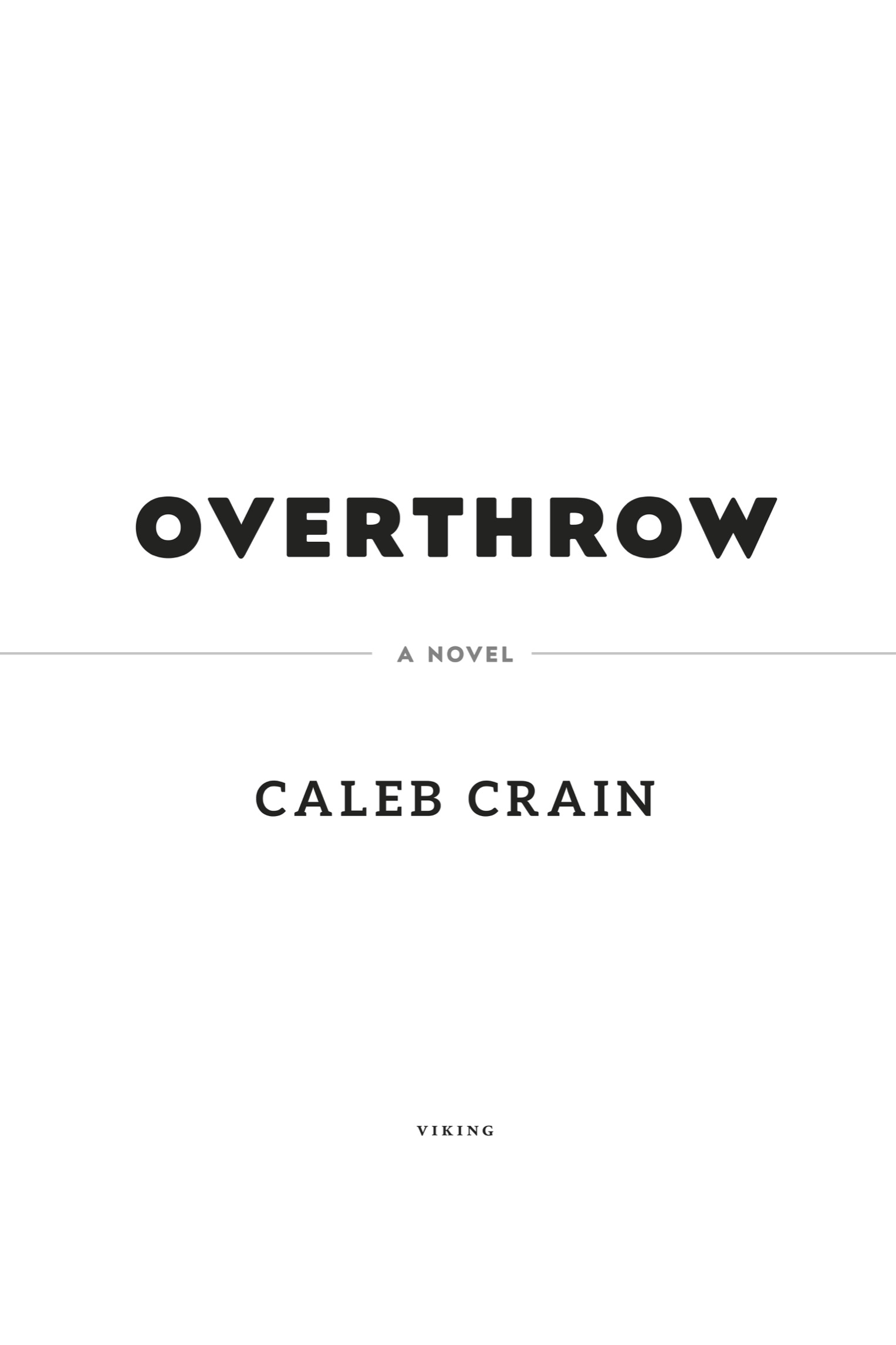Penguin supports copyright. Copyright fuels creativity, encourages diverse voices, promotes free speech, and creates a vibrant culture. Thank you for buying an authorized edition of this book and for complying with copyright laws by not reproducing, scanning, or distributing any part of it in any form without permission. You are supporting writers and allowing Penguin to continue to publish books for every reader.
The author thanks Allison Lorentzen, Ben Nugent, Christine Smallwood, Peter Terzian, and Ben Wizner for their insights into an early draft and their suggestions for improving it. He thanks Sarah Chalfant and Jacqueline Ko at the Wylie Agency, and Allison Lorentzen, Norma Barksdale, and the rest of the team at Viking for shepherding the book into print.
Names: Crain, Caleb, author.
Title: Overthrow : a novel / Caleb Crain.
Identifiers: LCCN 2019003204 (print) | LCCN 2019005390 (ebook) | ISBN 9780525560463 (ebook) | ISBN 9780525560456 (hardcover)
Classification: LCC PS3603.R359 (ebook) | LCC PS3603.R359 O94 2019 (print) | DDC 813/.6dc23
This is a work of fiction. Names, characters, places, and incidents either are the product of the authors imagination or are used fictitiously, and any resemblance to actual persons, living or dead, businesses, companies, events, or locales is entirely coincidental.
But not my griefs; still am I king of those.
1.
It was a few days after the clocks had fallen back for the end of daylight saving time, during the interval when people have adjusted their schedules but not yet their habits. A graduate student in English named Matthew Fisher was walking home from the subway. Dusk had caught the houses along the street with their blinds still undrawn, and living room after living room was exposed, glowing in bright display. Was it wrong to look into them? It was like looking into lives that one wasnt going to get to live. Matthew saw a toy sailboat on top of a television. He saw a sweater folded over the back of a chair. When he saw a pinecone on a mantelpiece, for a moment he seemed to see the room that contained the pinecone from the pinecones point of view, as if he, too, were surrounded by the bright yellow cheer that belonged to the family that lived there.
And then he was himself again, outside in the dark, walking.
He had a beard, which he had grown after he had turned thirty, just over a year ago, in the hope that it would make him a little harder to read. He was pretty sure that he did now look a little bearish. In one of his online profiles he claimed to have a boxers build, which wasnt completely misrepresentative. According to a man he had recently picked up in a bar, he looked like the sort of person who could work for a long time without getting sick.
He hadnt called the man again, afterward. He was a little alone in the world at the moment, as it happened. He had fallen behind in writing his dissertation, and his close friends in the program, including a man hed been seeing, hadnt. They had finished in the spring and then left for jobs and fellowships in other parts of the country over the summer. He had stayed in touch with some of them by email, and he and the now amicably former boyfriend talked now and then by phone. He hadnt foreseen how hard it would be to replace a number of friends at once, exactly when one was supposed to be conserving ones energies for research and writing. Nor had he foreseen that not having people in ones life would make it much more difficult to take in new ones. Under the circumstances, any single new person seemed to carry somehow too much presence.
Tonight, though, he noticed that he seemed able to send some of himself out into the world. Halfway down the block, he became aware of a young man on a skateboard, pushing down the sidewalk toward him. Twenty-three? Twenty-four? The boy was wearing a gray toggle coat. Against the dim evening, his face and bare hands were almost luminous. He had a sort of elfin beauty, Matthew saw as the boy came nearer. A fine nose. Thin lips. Eyes like little candies. A few yards from Matthew, the boy kicked up his skateboard and carried it. The dismounting might have been no more than urban politeness, but when his eyes met Matthews, they had a sly look, and Matthew heard himself saying hi.
Oh, hi, the skateboarder replied, stopping in his tracks.
It was always startling that it turned out to be so easy. For a moment Matthew didnt know what to say. The boy was taller than Matthew was.
You can say it, said the skateboarder.
Say what? Matthew wondered aloud.
Im on my way to a friends. Do you want to come?
Is he a skater like you?
She. No.
She.
Shes straight, even.
I remember straight people, said Matthew.
The boy continued to carry his skateboard, and Matthew, reversing direction, fell into step beside him. The skateboarder said his name was Leif. He had been skating at the late-nineteenth-century monument at the park entrance a block away. Matthew was familiar with it. A marble ledge at the back served as a bench, and skaters liked to pop their boards into the air and surf along the benchs edge, as if filing it down by skidding along it. The marble was soft, and Matthew had noticed that they were in fact filing it down, unevenly. He always felt a little protective of a thing if it spoke of the past.
The city had trained him to be a connoisseur, and he could tell that this boy, with his nonchalance and moonglow complexion, outclassed him. Still, he was used to getting more than he deserved, and there wasnt any evidence of unwillingness. In a few minutes, he might be grabbing the tousled hair at the back of the boys head and kissing him.
He was aware, however, that as they walked, his own apartment was receding behind them, along with the prospect of dinner.
Where are you taking me? Matthew asked.
Down the rabbit hole.
Uh-oh.
No, not really.
Drink me, I hope, Matthew hinted.
Subtle!
I mean, drink you, as it were, Matthew clarified. That youre a tall drink of water or whatever.
As it were, the young man echoed.
Not that thats any more subtle, Matthew admitted. He didnt believe in dignity, at least not where the pursuit of boys was concerned. The skateboarder, for his part, accepted the compliment without acknowledgment, and Matthew realized that he knew he wanted the boy without knowing yet whether he liked him. The boy might be stringing Matthew along merely for the pleasure of manifesting the power of his own beauty.
Youre sweet, the boy offered.
No, Im not, Matthew replied.
In pickups, there were always small frustrations and disappointments, such as delay, that one had to decide what to do with. If they added up too quickly, one could decide to set against them not only the pleasure that, if all went well, one was about to have, but also the revenge of never seeing the man again, afterward. In case he might want to see the man again, howeverin case the latest boy might turn out to be the one for whom he was willing to break the pattern of solitude that he had fallen intoMatthew always tried, for as long as he could (for a while, anyway), to turn aside any verdict that negative impressions of the boy might have led him to by sorting them, along with positive ones, into a picture or story that was, at least tentatively, worth holding on to. That is, he tried, as he assembled the picture or story, to see in it someone he might be interested in or even able to fall for. Someone he could imagine looking back at the picture with.

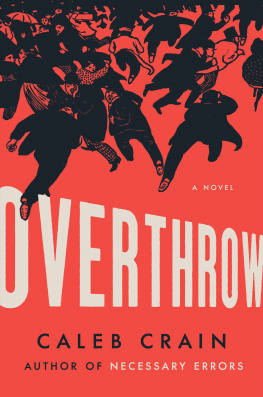
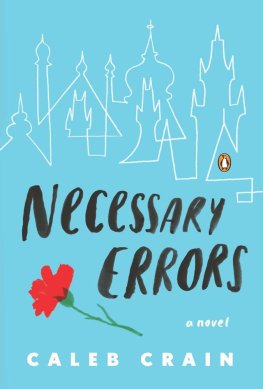
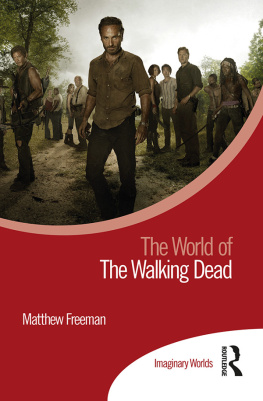
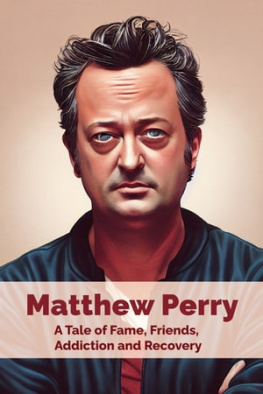
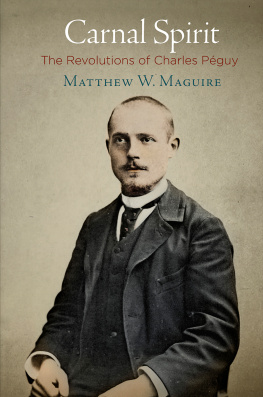


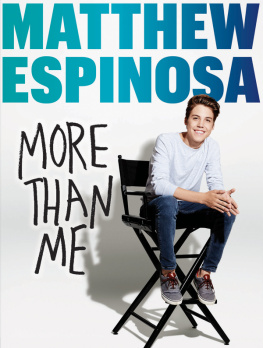

![Harvie Christopher - Nineteenth-century Britain: a very short introduction ; [in memorian Colin Matthew]](/uploads/posts/book/137651/thumbs/harvie-christopher-nineteenth-century-britain-a.jpg)
